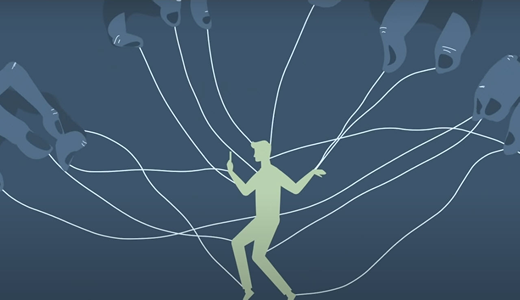Technology changes the way we live. Thus it has always been. We develop new habits, new ways of living, new patterns for how we do things. But technology itself is morally neutral, right?
Not so fast.
The Social Dilemma, a documentary now streaming on Netflix, suggests otherwise—at least when it comes to social media. The film’s gripping narrative examines the influence of social media upon global culture and paints a sober portrait of how this seemingly innocuous technological advance is more pernicious than we perhaps realize.
The documentary, directed by Jeff Orlowski, is built on the premise that there’s something wrong, something off with the way this technology is influencing us. Orlowski and his filmmaking team makes this case by interviewing top former executives and entrepreneurs from companies such as Facebook, Pinterest, Google, Twitter and others.
Each of the insiders interviewed has developed a growing sense of unease about how social media is—albeit unintentionally—eroding relationships, damaging the mental health of young users, and ultimately contributing to the tribalization and polarization of various cultures around the world.
The Social Dilemma examines the unintended consequences of the social media revolution to help us understand just how tightly the digital tentacles of these companies grip us. At the core, the ethical issue in play is this: Everything on social media is designed (both by humans and by increasingly sophisticated artificial intelligence) to get users to do one thing: spend more time on screens. Social networks and search engines have evolved to pay attention to every click, every swipe, every image, generating data that’s used for two things: keeping users evermore engaged and monetizing it in every way possible.
Jaron Lanier, described as the inventor of virtual reality, says, “If you’re not paying for the product, then you are the product.” Former Pinterest CEO Tim Kendall describes these companies’ collective mode of operation this way: “Let’s figure out how to as much of this person’s attention as we possibly can. How much time can we get you to spend? How much of your life can we get you to give to us?” He concludes: “We’re the product. Our attention span is the product being sold to advertisers.”
The documentary then goes deeper, talking about how A/B testing combined with a sophisticated understanding of behavioral psychology gives a handful of people the ability to get social media users to do what they want them to do.
Researchers have increasingly recognized a correlation between the confluence of smartphones and social media, and the sharp rise in teen mental health struggles (including suicide). The Social Dilemma examines that correlation, too, suggesting that “social media starts to … take over kids sense of self-worth and identity.”
Finally, the documentary takes a truly sobering look at how the rancorous divisions in our culture over political issues may well be due in part to social media’s influence as well. Specifically, the fact that social media is designed to give us more of what we’re looking for—i.e., people who agree with us.
It’s rare that I see something that feels so important that I want to tell everyone to watch it. But The Social Dilemma checks that box for me. A handful of profanities (including two s-words) may push it out of bounds for some potential viewers, but this film feels like must-see viewing for families with teens on up. It will make you uncomfortable. It will prompt you to ponder your habits. It may even be a catalyst for making significant changes.
And it may mean that you never look at your Facebook feed or Google autofill or your various mobile notifications quite the same way again.
For more about how to navigate the world of technology and social media with your family, check out the Plugged In Parent’s Guide to Today’s Technology.







One Response
– This is one of the most needed shows to watch. Social Media is so dangerous. We must be aware of this. Unfortunately many aren’t doing Netflix anymore due to the Cuties issue. I hope they watch it anyway.